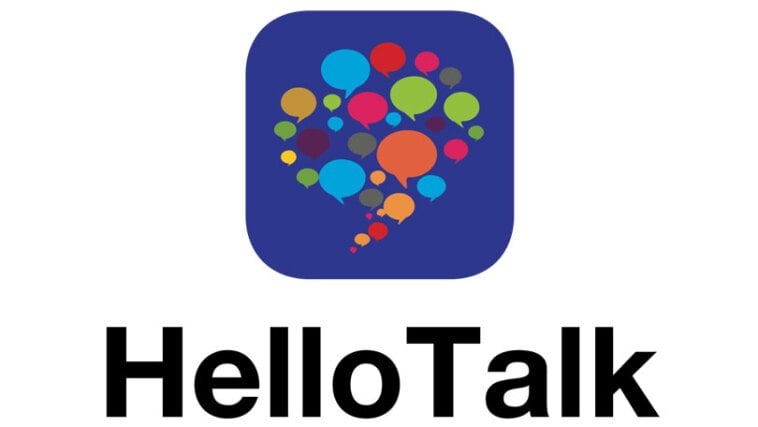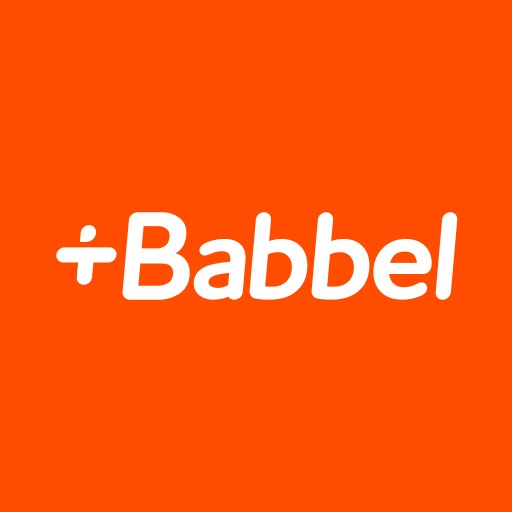Have you ever wondered why learning English is such a big deal in Japan? Well, it’s not just about speaking another language; it’s like having a key to a whole new world of opportunities! English is like the universal language of movies, music, and chatting with people from all over.

And guess what? Nowadays, we have these awesome AI-driven apps that make learning English super fun and easy. They’re like having a cool English teacher right in your pocket, ready to help you learn anytime, anywhere.
In this article, we’ll explore the top 5 AI-driven English learning apps that are specifically tailored for Japanese learners. These apps offer personalized lessons, interactive exercises, and innovative features to help you level up your English skills in no time.
So, let’s jump right in!
Table Of Contents 👉
1. AmazingTalker

It’s not just a regular English learning app; it’s like having a tailor-made learning experience just for you. With this app, you’ll have your own personal English coach who understands exactly what you need to learn. And that’s what AmazingTalker is all about.
So, why AmazingTalker? Well, one of the coolest things about AmazingTalker is how personalized it is. It’s not just about learning random stuff; it’s about learning what matters to you.
Whether you want to improve your conversation skills, master grammar, or sound more natural, AmazingTalker’s got your back.
Let’s explore the unique features of this platform.
AmazingTalker offers オンライン 英語 (online English lessons) based on your level, goals, and interests. It creates a customized learning plan just for you.
With AmazingTalker, you can learn from native English speakers. Their tutors are not only experts in English but also understand the nuances of Japanese learning styles.
AmazingTalker uses interactive tools like videos, quizzes, and games to keep you engaged and motivated.
How is it perfect for Japanese learners? For Japanese learners, AmazingTalker is like a dream come true. It understands the challenges Japanese speakers face when learning English, like pronunciation and grammar.
The tutors are trained to address these specific needs, making your learning journey smoother and more effective.
Pros:
- Personalized learning experience tailored to your needs.
- Native-speaking tutors who understand Japanese learners.
- Interactive and engaging lessons.
Cons:
- Pricing may be higher compared to some other apps.
- Limited free content; most features require a subscription.
2. Duolingo

Duolingo is not a typical language-learning app; it’s like a game that makes learning English fun and addictive. It’s perfect for those who love a bit of challenge mixed with fun.
The gamified approach of Duolingo sets it apart. Instead of boring lessons, you’ll be completing levels, earning rewards, and competing with friends. It’s like leveling up in a video game but with real language skills!
For Japanese learners, Duolingo offers exercises specifically designed to help you recognize and understand kanji characters in an English context.
Duolingo tracks your progress and adapts the difficulty level based on how well you’re doing. It’s like having a smart tutor who knows exactly what you need to work on.
Wondering how good your English skills are? Duolingo also offers proficiency assessments to give you a clear idea of your strengths and areas for improvement.
Duolingo’s gamified approach appeals to Japanese learners who enjoy challenges and rewards. The kanji recognition exercises are especially helpful for bridging the gap between Japanese and English characters.
Pros:
- Fun and engaging gamified learning experience.
- Kanji recognition exercises for Japanese learners.
- Progress tracking and proficiency assessments.
Cons:
- Limited speaking and listening practice compared to other apps.
- Some users may find the gamified approach too simplistic for advanced learning.
3. Rosetta Stone

Rosetta Stone takes a unique approach to language learning by immersing you in the language from the start. It’s like being surrounded by English speakers, learning naturally through immersion.
The immersive learning method of Rosetta Stone is what makes it special. Instead of translating words, you learn by associating images with words and phrases. Just like how you learned your native language as a child.
Rosetta Stone uses AI-powered speech recognition to help you perfect your pronunciation. It’s a language coach who gives you instant feedback.
The lessons in Rosetta Stone are designed to simulate real-life situations, giving you practical language skills for everyday conversations.
While writing and grammar are important, Rosetta Stone prioritizes speaking and listening skills. This makes it ideal for learners who want to become fluent speakers.
For Japanese learners, Rosetta Stone’s immersive approach helps bridge the gap between Japanese and English. The focus on speaking and listening skills is particularly beneficial for those aiming for fluency.
Pros:
- The immersive learning method mimics natural language acquisition.
- AI-powered speech recognition for pronunciation practice.
- Focus on speaking and listening skills.
Cons:
- Less emphasis on writing and grammar.
- Some learners may find the immersion approach challenging initially.
4. HelloTalk

HelloTalk is a global language exchange community where you can connect with native speakers and practice English in real conversations.
One of the coolest features of HelloTalk is that native speakers can correct your messages. This means that you learn from your mistakes and improve your language skills.
Instead of just texting, HelloTalk allows you to send voice messages. You’ll feel like you’re having a real conversation with a friend.
You can join groups, participate in language challenges, and make friends while learning.
HelloTalk also integrates AI features to enhance your learning experience. For example, it may suggest vocabulary based on your conversations or provide grammar tips.
HelloTalk is perfect for Japanese learners who want to practice speaking and improve their conversation skills.
Pros:
- Language correction by native speakers.
- Voice messaging for realistic conversations.
- Community aspect with language challenges and groups.
Cons:
- Limited structured lessons compared to dedicated learning apps.
- Requires active participation to fully benefit from the language exchange.
5. Babbel

Babbel stands out as a language learning app that offers structured courses designed to help you progress from beginner to advanced levels effectively.
It provides structured courses that cover all aspects of language learning, including vocabulary, grammar, speaking, listening, and writing.
Babbel uses AI to personalize lessons based on your learning style, progress, and goals. It makes sure that you get the most relevant content.
Babbel emphasizes practical vocabulary and grammar that you can use in real-life situations. This makes your learning experience more practical and effective.
For Japanese learners, Babbel’s structured approach is beneficial as it helps break down the complexities of English into manageable parts.
The focus on practical vocabulary and grammar also aligns well with the needs of Japanese speakers.
Pros:
Structured courses covering all language aspects.
Personalized lessons based on AI-driven learning.
Emphasis on practical vocabulary and grammar.
Cons:
Limited free content; subscription required for full access.
Less emphasis on speaking practice compared to some other apps.
| App | Key Features | Pricing | User Feedback |
| AmazingTalker | Personalized lessons, native-speaking tutors, interactive learning | Varies based on plans | Positive reviews from Japanese learners |
| Duolingo | Gamified approach, kanji recognition exercises, progress tracking | Free with optional upgrades | Mixed feedback on speaking and listening practice |
| Rosetta Stone | Immersive learning, AI-powered speech recognition, cultural context | Subscription based | Subscription-based |
| Hello Talk | Language exchange, native speaker correction, voice messaging | Free with premium features | High praise for community engagement and corrections |
| Babbel | Structured courses, AI-driven personalized lessons, practical vocabulary | Subscription-based | Positive reviews on structured learning and content |
Conclusion
Thanks to these AI-powered apps that we’ve explored, learning English in Japan will no longer be a difficult task in 2024. Let’s summarize what we’ve discovered:
For personalized lessons and interactive learning: AmazingTalker
For a gamified approach: Duolingo
For immersive learning: Rosetta Stone
For practicing conversation with native speakers: HelloTalk
For structured courses: Babbel
In the end, it’s about finding the app that aligns with your learning style and keeps you motivated. So, explore these options and choose the one that feels like the perfect fit for you!
Related Stories:
